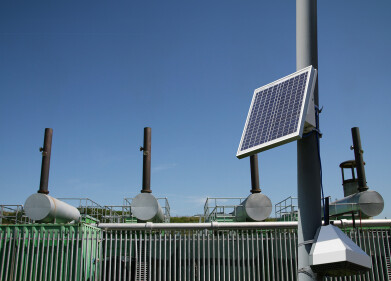Measurement and Testing
Why Has Russia Ruled Out Fossil Fuel Production Cuts?
Nov 25 2020
A recent statement from Russian energy minister Alexander Novak has confirmed the Federation has no plans to phase out fossil fuel production over the coming decades. Instead, Novak says the country will continue to produce fossil fuels and maintain its status as one of the biggest energy giants in the world.
Citing the world’s growing appetite for gas, Novak says Russia does not expect to “achieve a peak in production anytime soon” and asserts the country will continue to expand its fossil fuel projects. By 2035 Novak says Russian gas production is expected to hit 1tn cubic meters a year. In 2019 the country was producing 680bn cubic meters per year, which means production will increase significantly over the coming decades.
Russia preparing for gas boom
Novak has also confirmed plans to increase gas exports over the next 15 years, with enormous super-chilled tankers set to transport around 120-140m tonnes per year. This represents an increase of more than fourfold from last year’s figures. Russia will also continue to transport 200bn cubic meters of gas to the European mainland using the Nord Stream pipeline network. As countries like China and India begin to phase out coal burning for environmental and public health reasons, Russia expects demand for gas to soar.
“I believe natural gas to be an eco-friendly energy source,” said Novak. “We believe that the share of natural gas in the global energy mix will only increase. We believe this to apply not only to Europe, but globally too.”
Russia targets carbon capture and clean-burning hydrogen
While there are concerns this could have a negative impact on the country’s climate change and environmental targets, Novak says Russia will also be spearheading carbon capture initiatives and clean-burning hydrogen. Over the next decade the country plans to emerge as a global leader in both areas.
“All this has been quite expensive so far, but we believe that just like with the renewable energy sources, prices will go down over time, which will determine the pace of hydrogen adoption. To put it briefly, we can produce hydrogen and use it, as well as deliver it to consumers. We can also export the hydrogen production technologies,” says Novak. “We are working very actively in Russia, pursuing the climate agenda, working to decrease the greenhouse and CO2 emissions, and we’re working on these issues on a systematic basis.”
In the face of climate change producers are being forced to adapt and innovate. Find out more about the latest oil and gas advances in ‘Applications, Tests, and Measures of Viscosity Loss in Shear Stability of Multi-Grade, Polymer-Thickened Lubricants.
Digital Edition
PIN 25.5 Oct/Nov 2024
November 2024
Analytical Instrumentation - Picturing Viscosity – How Can a Viscometer or a Rheometer Benefit You? - Sustainable Grease Formulations: Evaluating Key Performance Parameters and Testing Method...
View all digital editions
Events
Nov 27 2024 Istanbul, Turkey
Biogas Convention & Trade Fair 2024
Nov 27 2024 Hanover, Germany
Dec 03 2024 Dusseldorf, Germany
Dec 08 2024 Anaheim, CA, USA
Turkey & Black Sea Oil and Gas
Dec 11 2024 Istanbul, Turkey
.jpg)


















